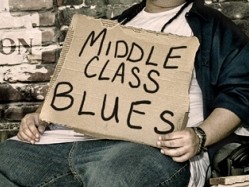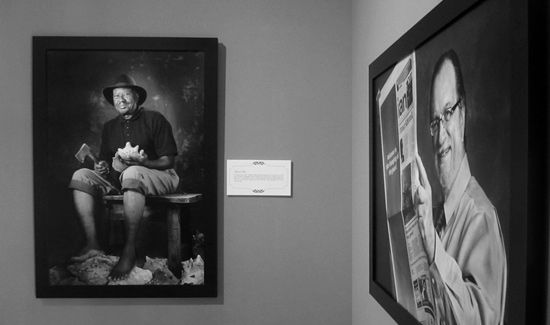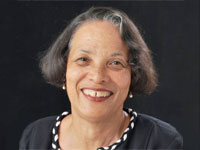 The lead character in the British sitcom, Keeping Up Appearances is the pretentious social-climber Hyacinth Bucket (who prefers her name to be pronounced Bouquet). Hyacinth is middle class “wedged between a working class background and upper class aspirations”.
The lead character in the British sitcom, Keeping Up Appearances is the pretentious social-climber Hyacinth Bucket (who prefers her name to be pronounced Bouquet). Hyacinth is middle class “wedged between a working class background and upper class aspirations”.
Though she and husband, Richard, are financially comfortable, “the lady of the house”, as she refers to herself, is obsessive about giving the appearance of being higher up on the social ladder of British society.
Among much of today’s Bahamian middle class, keeping up appearances is also important. Bahamians generally know how to look good. We have the nice clothes with the requisite brand labels and accessories from jewelry to designer eyewear. We also accessorize our status with just the right car or SUV.
Today, much of this is a desperate keeping up of appearances as much of the middle class is in financial turmoil. The turmoil and deep-seated anxiety is affecting everything from divorce rates to chemical dependency to voting patterns. Many are barely surviving paycheck-to-paycheck and from maxed-out credit card to maxed-out credit card.
For more of the middle class than many may imagine, the credit card shuffle is a seemingly never-ending juggling of ever mounting debt with a dwindling availability of credit in order to stay afloat.
Inability
Like much of their counterparts around the world, the Bahamian middle class is living atop a pile of debt. Debt is not something new for our middle class. What is new, increasingly more so beginning in the last decade, is the gnawing worry by many more Bahamians of their inability to pay off their debts.
An astute observer of national affairs recently forwarded this note:
“Our reality today is that the average Bahamian, a traditionally very high-spending consumer, feels deprived of their past capacity to consume which was an important source of our happiness.”
This is often especially more so the higher one ascends the middle class ladder from the lower to upper middle class. The higher one ascends the potentially greater capacity for greater spending and consumption – and presumably, in some people’s minds, happiness.
But today, many in the middle class find themselves constrained in how much disposable income they have not just to indulge their habits of conspicuous consumption. Many are simply trying to make ends meet.
It’s not just about the designer labels on clothes, cars and other status symbols. It’s also about paying school fees and the mortgage. Not only are many not happy about what they can’t easily purchase. Many are anxious about basic expenses from electricity to groceries.
Class is a core part of identity. For many middle class Bahamians a critical part of their identity is at risk. The Great Recession has made matters worse. Many who have savings have seen them dwindle. Others simply don’t have anything left at the end of the month to save.
Beset by low or no savings, increasing debt and dwindling credit, many in the middle class are also squeezed by a higher cost of living. Food prices and energy costs, including gas prices at the pump and electricity bills, continue to eat away at the disposable income of many families.
Even keeping the lights on has been a challenge for many. Over the past several years the former Ingraham administration caused three rounds of reconnections for thousands of consumers of BEC.
Many feel that their home equity is imperiled as they are unable to sustain mortgage payments. As home equity is an essential component of sustaining one’s financial status and wealth creation, the possibility of losing such equity is potentially devastating for those families caught in the home mortgage crisis.
Exacerbating these financial woes is rising crime rates and the continued congestion of New Providence. The Great Recession has made matters even worse in Grand Bahama. All of this makes for an acutely restive middle class.
The gap between what many in the middle class expect from their lives and today’s reality is more than a financial crisis. The gap speaks to the very identity of many as they face what they see as a bleak future on several fronts.
Anxiety
All of which makes for deep anxiety and anger, and fallout in politics. Fear of crime and that economic woes may be here for some time has engendered less social trust generally and less trust of various political institutions.
Bahamians have usually felt that the tough times would end at some point. Such confidence has been badly shaken during the Great Recession, which some prominent economists such as Paul Krugman is calling a depression.
Though their missions are different, the civic group, We the People, and the Democratic National Alliance are both middle class movements formed in response to various signs of the times that are creating a sense of social dislocation and angst in the body politic.
If economic woes and high crime rates persist we may see a stretch of one term governments as voters take out their frustrations on the easiest target available. As the Christie administration has quickly learned, fiscal reality can quickly shred promises made during a campaign.
The extraordinarily high expectations that the PLP set in the general election played a role in its electoral victory. Now in office these very same outsized expectations may sow the seeds for a significant loss of support if these expectations are unfulfilled.
One of the only predictable realities during these times is the level of unpredictability for many, including a middle class that is increasingly less able at keeping up appearances.
By: Simon
Source: The Nassau Guardian
Simon’s commentary is also available on the www.bahamapundit.com website



